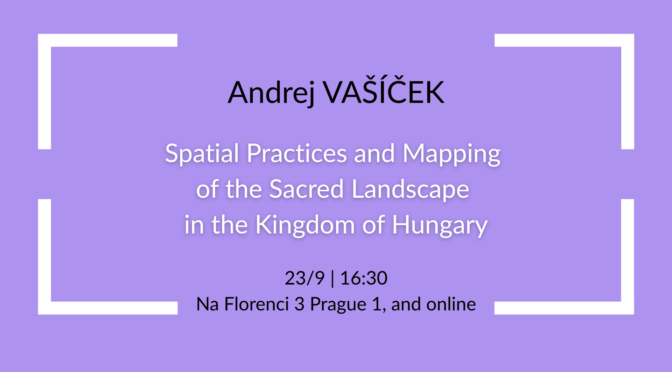
1st session of CEFRES in-house seminar
Through the presentation of works in progress, CEFRES’s Seminar aims at raising and discussing issues about methods, approaches or concepts, in a multidisciplinary spirit, allowing everyone to confront her or his own perspectives with the research presented.
Location: CEFRES Library and online (to get the link, write to cefres[@]cefres.cz)
Date: Tuesday, September 23, 2025 at 4:30 pm
Language: English
Speaker: Andrej VAŠÍČEK (CEFRES / FiF UK)
Discussant: Markéta ŠANTRŮČKOVÁ (Department of Cultural Landscape and Sites, Research Institute for Landscape and Ornamental Gardening – VUKOZ v.v.i)
Abstract
The lecture approaches the sacred landscape as a dynamic network of places and routes shaped by Baroque piety, diocesan reorganization and everyday practice. It combines historical geography with GIS to reconstruct how churches, chapels, Calvaries, crosses and cemeteries formed spatial hierarchies and itineraries. Cartographic sources are treated interpretively and cross-checked against canonical visitations, schematisms, municipal and parish records, epigraphy and field observation. A micro-case from the town of Púchov demonstrates hydrological and transport thresholds, the relocation of burial grounds extra muros and the dating power of chronograms. The talk proposes a transferable workflow for the historical-geographical reconstruction of sacred layers in Central Europe and reflects on practical uses in heritage management, spatial planning and public engagement.
Please find the complete program of 2025–2026 seminar here.
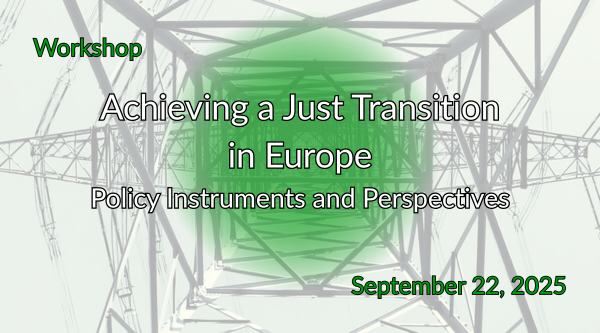
This workshop is organised by CEFRES in partnership with CNRS & the Embassy of the Republic of Poland in Prague, within the research project Contested energy transitions. Conflicts and Social innovations in big cities in the Czech Republic, France and Poland supported by the CNRS / CAS Tandem Program.
Date: September 22, 2025
Location: CEFRES, Na Florenci 3, Prague 1
Language: English
Please register at the address gilles.lepesant@cnrs.fr
Convenor: Gilles LEPESANT, Research fellow at CNRS/CEFRES (Prague)
Program
Continue reading Achieving a Just Transition in Europe: Policy Instruments and Perspectives →
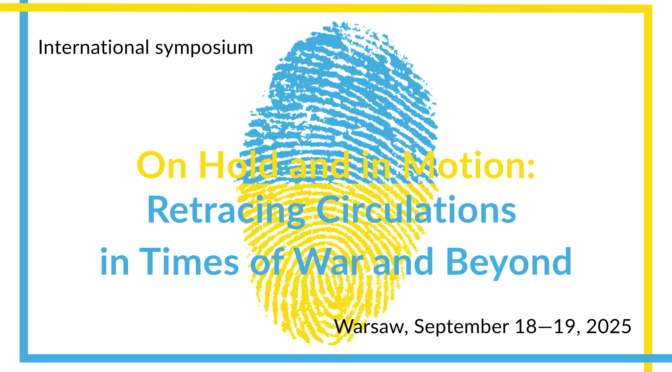
Retracing Circulations in Times of War and Beyond
==> zoom link changed: see below
The workshop is a part of a program developed jointly by the Eastern Europe, Caucasus and Northern Asia Research Institute (IRECA, Warsaw), the French Research Center for Humanities and Social Sciences and its Platform (CEFRES, Prague) and the Marc Bloch Center (CMB, Berlin): initiated in 2023 at CEFRES and continued in 2024 by CEFRES and the CMB (41 non-residential scholarships and 13 residential scholarships awarded in 2023-2024), and in 2025 by CEFRES, CMB & IRECA in collaboration with the French Ministry of Europe and Foreign Affairs (MEAE), the French Embassy in Ukraine and the French National Centre for Scientific Research (CNRS).
Date: October 18—19, 2025
Location: University of Warsaw, Dobra 55
Language: English
Organizers :
Mateusz Chmurski (French Research Centre for Humanities & Social Sciences, Prague)
Laure Delcour (French Research Institute on Eastern Europe, the Caucasus and Northern Asia, Warsaw)
Iryna Klymenko (Max Weber Foundation Research Center Ukraine)
Jay Rowell (Marc Bloch Centre, Berlin)
See the program in PDF here.
https://us02web.zoom.us/j/84943704066?pwd=Lp6hjWUVtntTcbe9ZsLEqbopAw5wNW.1
ID de réunion: 849 4370 4066
Code secret: 309777
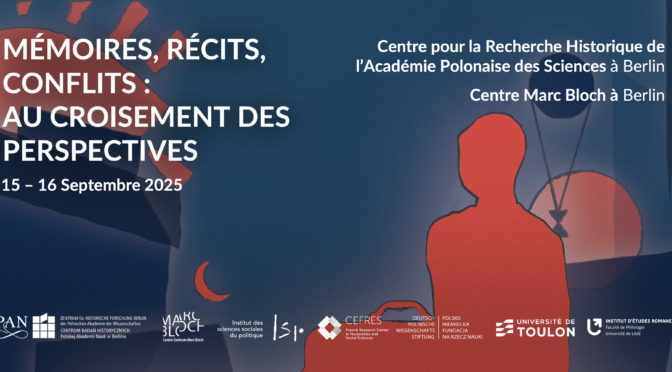
A conference organized by:
Centre d’études historiques de l’Académie polonaise des Sciences (CBH-PAN)
ISP (UMR 7220)
LincS (UMR 7069)
Université de Toulon
Université de Łódź
and the French Research Center in Humanities and Social Sciences (CEFRES, Prague)
Date: September 15–16, 2025
Location: Berlin, Polish Academy of Sciences, Marc Bloch Center
Languages: English & French
‘Memory’ as a subject of study and a political, social and media issue has dominated public debate in Europe since the late 1980s. ‘Duty to remember,’ ‘realms of memory,’ ‘wars of memory,’ ‘competition among victims,’ ‘memory invasion,’ ‘paths of memory,’ ‘politics of memory,’ ‘defence of memory,’ ‘murderers of memory’: these expressions reflect a new relationship with the world, a new regime of historicity that François Hartog calls presentism. This new configuration of the relationship with the past is reflected in various identity claims, particularly from previously dominated groups, but also in new institutional practices. Memory becomes a tool for mobilisation and intervention in the media, in public life, in politics in the broad sense of the term, but also in literature and the arts. It fuels epistemological reflection within the humanities and social sciences community. Continue reading Memory, Narratives, and Conflicts: At the Confluence of Perspectives →
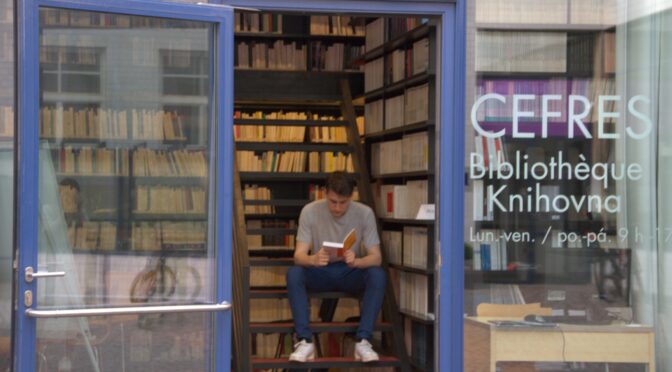
In Summer, i.e. from July 1 until August 8 th, the library is open by appointment. Then it will be closed between August 11 and 22.
Please write to: claire.madl[at]cefres.cz
or call us: +420 224 912 494
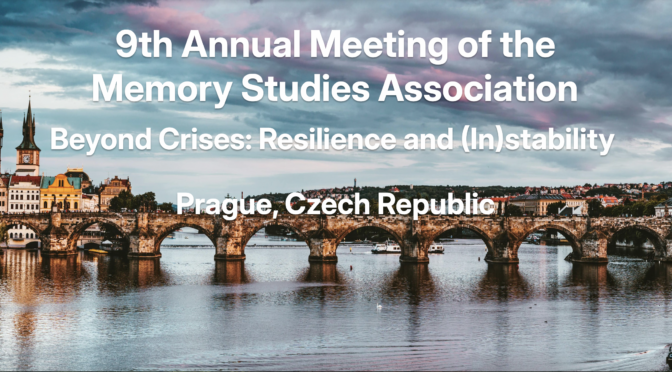
9th Annual Meeting of the Memory Studies Association
The conference is organized by Memory Studies Association, Charles University and Czech Academy of Sciences with the support of CEFRES.
Date: July 14–18, 2025
Location: Charles University and the Czech Academy of Sciences, Prague
Language: English Continue reading Beyond Crisis: Resilience and (In)stability →






